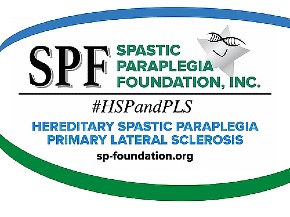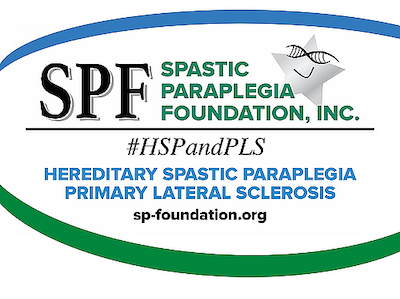Amid a boom in genetic testing that aims to predict a person’s response to medication, the Food and Drug Administration has been quietly pressuring a handful of companies to stop reporting results to patients about how their genes may interact with specific drugs.
The agency’s concern? That unsupported claims about gene-drug links could be dangerous, if they spur patients to start, stop, or switch medications in ways that aren’t appropriate.
Myriad Genetics (MYGN) saw its stock fall earlier this month after reporting to investors that the FDA wanted changes to its so-called pharmacogenetic test. Color, OneOme, and Genomind — all of which offer such tests ordered by a physician — confirmed to STAT that they recently made changes in how they report these test results in response to back-channel conversations with the FDA.
The regulatory scrutiny has even reached the National Institutes of Health’s landmark “All of Us” precision medicine study, which has long planned to report pharmacogenetic information to its hundreds of thousands of participants — and is now in discussions with the FDA about how best to do that. A spokesperson for the research program said that no decisions have been made about what exactly will be returned.
Industry insiders say they’re confused by what they perceive as a sudden and unexplained crackdown on a field that until recently had been subject to minimal scrutiny from the FDA. The Personalized Medicine Coalition, a trade group that includes these testing companies, has scheduled a meeting for next month with representatives from the FDA to try to get more clarity on what’s expected of its member companies.
Consider OneOme, a Minnesota startup backed by the Mayo Clinic. The company’s RightMed test had previously reported on interactions between genetic variants and dozens of specific drugs used in treating cancer, mental illness, heart problems, and all sorts of other conditions. A sample report dated July 2018 deploys bright red exclamation points to report several “major drug-gene interactions”: One genetic variant puts the patient at elevated risk for hypersensitivity reactions to the anticonvulsant drug sold as Dilantin; another variant likely confers increased metabolism of the antidepressant sold as Celexa, the report says.
Now? The sample report on OneOme’s website doesn’t mention specific drugs at all. Instead, it reports generally on the effects of certain variants, such as one of the gene CYP3A5 likely to make the patient a poor metabolizer — though of what, exactly, it does not say.
A spokesperson for OneOme confirmed that the company introduced a new version of the report scrubbed of reference to specific medications at the start of this month, as a result of months of discussions with the FDA.
The elevated regulatory scrutiny, first reported by the genetics news site GenomeWeb, comes as pharmacogenetic testing is gaining mainstream traction. The insurance giant UnitedHealthcare this month announced that it would begin covering several of the commercial tests this fall. Also this year, the Department of Veterans Affairs launched a pilot program to use the genetic profiles of veterans with a history of cancer to help personalize their medication regimens.
FDA spokesperson Megan McSeveney wouldn’t comment on any interactions with specific companies or the researchers behind the “All of Us” study. But McSeveney confirmed that the agency is looking into the marketing of some such tests, because it is “concerned that pharmacogenetic claims that have not been clinically validated could impact the safe use of drugs.”
McSeveney wouldn’t comment on any plans to issue guidance about pharmacogenetic testing, but said “we remain committed to continuing to communicate with marketers and developers of pharmacogenetic tests, as well as healthcare providers and patients.”
The evidence is mixed when it comes to the influence of specific genetic variants on how well medications work. Some of the links are so strongly supported that the FDA has approved labels for certain drugs that reference the influence of DNA — and in some cases recommend certain precautions to mitigate the elevated risk of side effects. For example, the labels of certain drugs point to a variant of the gene CYP2D6 that makes it hard to metabolize those medications.
But in many cases, support for pharmacogenetic testing remains shaky. In a 2018 review, a task force of the American Psychiatric Association’s research council concluded that such testing is not ready for prime time in that field. “Although some of the preliminary published data sound promising,” the task force members wrote, “there is insufficient evidence to support widespread use of combinatorial pharmacogenetic decision support tools at this point in time.”
Another concern: While such tests are meant to be ordered and explained by a physician, companies sometimes set up online ordering systems that look a lot like a direct-to-consumer offering. These allow a physician — often paid by the company and not someone the patient has a relationship with — to authorize the test remotely. The result is that patients may not get the guidance they need to interpret complex results.
Pharmacogenetic tests are generally considered to be in the category of so-called laboratory-developed tests, which are designed and processed in a single lab. These labs must be certified under the set of federal quality control standards known as the Clinical Laboratory Improvement Amendments of 1988, or CLIA for short.
The makers of these tests are expected to follow industry standards and guidelines, but they usually haven’t felt the need to try to seek FDA clearance for their products. (There are some exceptions, like a decade-old physician-ordered test from Luminex Corporation and a direct-to-consumer offering from 23andMe that became the first of its kind to win clearance last fall.)
The FDA has mostly left the makers of these companies alone, exercising what’s known in the industry as “enforcement discretion” — until recent months, when the agency has increasingly signaled that it’s stepping up enforcement around laboratory-developed tests.
With pharmacogenetic testing, the agency last fall issued a safety communicationsaying it hadn’t reviewed many commercial claims about gene-drug interactions — and was worried about how patients might act on them. Ben Kobren, a spokesperson for Silicon Valley-based Color, said that this communication was part of the reason his company made changes to the way it reports its pharmacogenetic results; Color also decided to act “out of an overabundance of caution,” he said.
Then, in April, FDA issued a formal warning letter to the genomics laboratory of the Virginia nonprofit health system Inova regarding its physician-ordered MediMap tests. Soon after, Inova stopped offering those tests, which in 2017 it had marketed during broadcasts of the Washington, D.C., NPR affiliate.
Meanwhile, industry insiders say that pharmacogenetic companies have been receiving informal letters and phone calls from FDA representatives. Other companies, such as Pennsylvania-based Genomind, have made changes to their test after reaching out to FDA proactively.
The company’s CEO, Shawn Patrick O’Brien, said he and his team contacted the FDA last fall to begin the process of seeking clearance for a physician-ordered test. The company introduced a new test in May, reporting information about how 24 genes may interact with certain medications.
In July, at the end of a routine face-to-face meeting with the FDA about its lab, agency representatives dropped some unexpected news: Genomind would need to make changes to its report. In several follow-up phone calls, representatives from the FDA made clear that Genomind — and the rest of the industry — could no longer report on interactions between genes and certain medications, including brand-name drugs, generics, and classes (like antidepressants or selective serotonin reuptake inhibitors). Instead, they would have to report generally about how a variant might affect the way drugs get absorbed, distributed, metabolized, or excreted.
O’Brien’s takeaway from those phone calls? The FDA is worried that certain marketing practices aimed at patients — something he emphasized his company steers clear of — “would make a patient stop their medication or move forward with another medication, not properly taper the dose between the two medications, and perhaps go from un-suicidal to suicidal, or have too many side effects because of a quick switch,” O’Brien said. Earlier this month, his company introduced an updated version of its report, with medication references removed.
Dr. Howard McLeod, who oversees pharmacogenetic testing as the medical director of a personalized medicine institute at Moffitt Cancer Center in Tampa, Fla., sees both good and bad in the FDA’s stepped-up scrutiny of the field.
“There are companies that were way overstating the effect of their test, and so this is cleaning that up,” McLeod said. But at the same time, he said, “it does put the patient and the ordering physician in a very vulnerable position — where instead of getting some guidance, they’re getting no guidance.”
That’s not a problem at medical centers where clinicians already have expertise about how to factor in genetic results when prescribing medications, McLeod said. But in most clinics and hospitals where that expertise is lacking, he said, the absence of specific information in these reports means that clinicians using them to inform decisions are “really having to rely on Google.”











